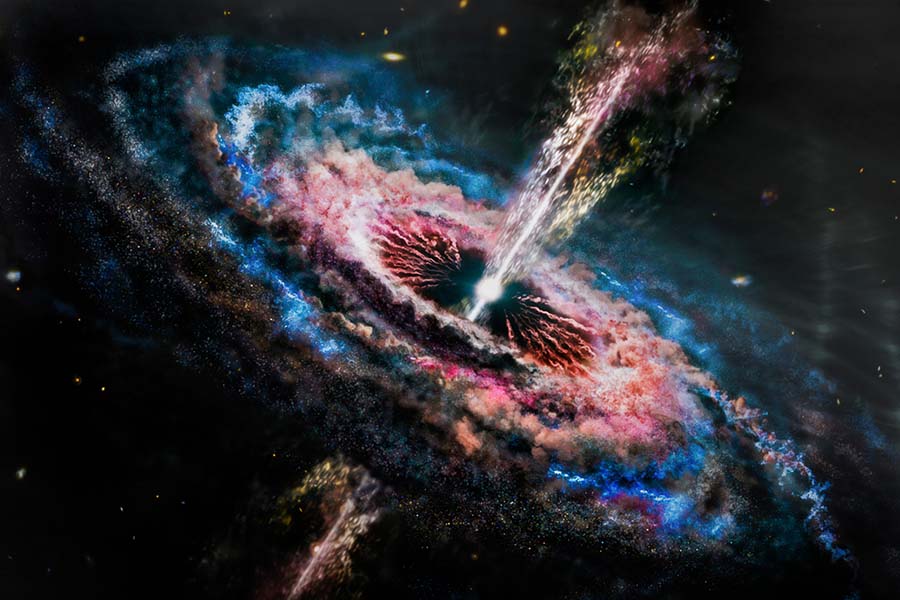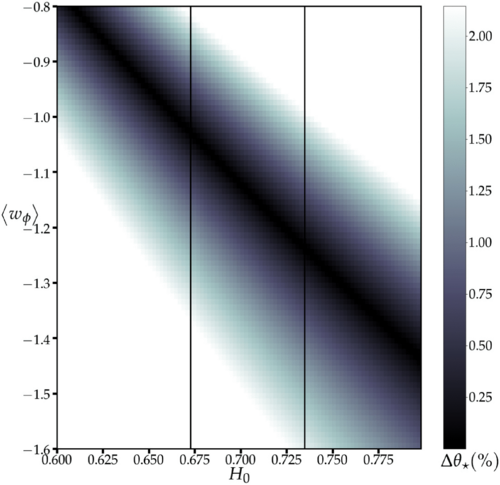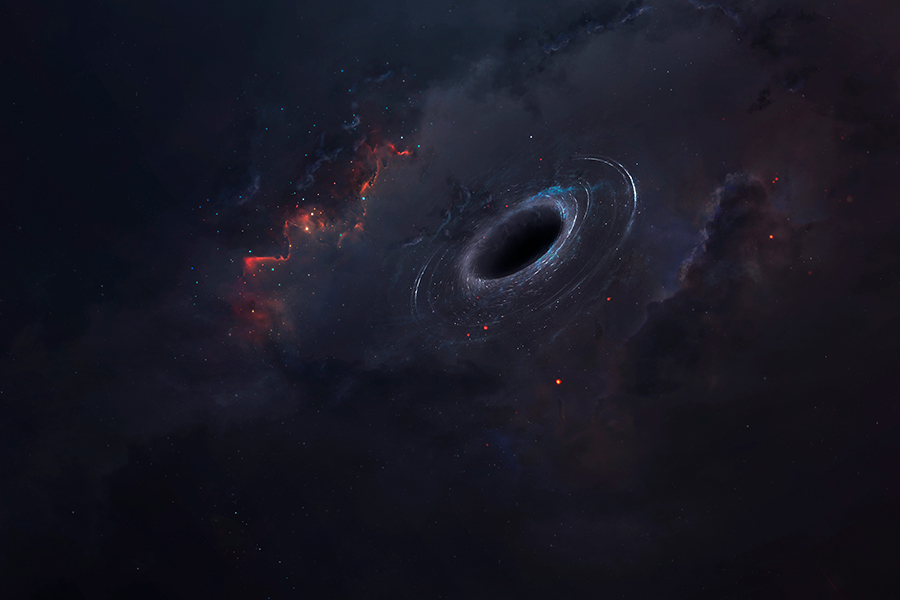Wo-Lung Lee Associate Professor | Department of Physics
Graduated from the University of Arizona, Lee’s area of expertise is physical cosmology including cosmic inflation, primordial black holes and magnetogenesis, and dark energy.


【Provided by Associate Professor Wo-Lung Lee and his team】
Recently, the observed equation of state for dark energy appears to favor values below −1. The tendency implies that the nature of dark energy may be quite different from that of the cosmological constant. In view of this, the introduction of the phantom energy seems inevitable. By employing observational constraints from supernovae and from the acoustic scale in which the accuracy of the data has become extraordinary, the research team applied a phenomenological scenario to be acquainted with the evolution of our universe. The demonstration of the constrained unfolding of the phantom energy shows that the model has high consistency with the current observation, suggesting that if it is phantom dark energy that is causing the accelerating expansion of the universe instead of the cosmological constant, then the Hubble constant may be different from the recent observations, and the “Hubble tension” problem may not be as severe as expected.
In the current standard model of cosmology, the dominant component driving the accelerated expansion of the universe is the so-called cosmological constant. However, the Hubble constant derived from the analysis of the primordial acoustic oscillations in the cosmic microwave background within the standard model exhibits a significant discrepancy with the rate of cosmic expansion inferred from observations of recent supernovae events. This "Hubble tension" problem seriously troubles the entire scientific community.
Inspired by the trend of observed equation of state for dark energy below -1, our research team constructed a phenomenological model of dynamic dark energy
The analysis results from the research team indicate that if phantom dark energy is used instead of the cosmological constant in the standard model, the so-called "Hubble tension" problem is not as severe and may even be resolved. This suggests that researchers must carefully reconsider the reasons behind the recent cosmic accelerated expansion phenomenon, and even consider modifying the standard cosmological model further!

Figure 1: Correspondence between dark energy state equation values and the Hubble constant, and the distribution of errors in the primordial acoustic oscillation scale.
Source:
Teng, Y. P., Lee, W., & Ng, K. W. (2021). Constraining the dark-energy equation of state with cosmological data. Physical Review D, 104(8),[A24].https://doi.org/10.1103/PhysRevD.104.083519

Graduated from the University of Arizona, Lee’s area of expertise is physical cosmology including cosmic inflation, primordial black holes and magnetogenesis, and dark energy.

Taiwan Rivers Are Helping to Cool Down the Earth by Delivering the Terrestrial Carbon to the Deep Ocean for Burial

Department of Geography

Detecting the size of primordial black holes with superhorizon perturbations

Department of Physics

The Magic of Transforming Carbon Dioxide to Ethanol: An Analysis of Copper-Based Electrochemical Catalysts

Department of Chemistry

Exploring reality in the virtual: Design and analysis of catalyst materials in theoretical computational chemistry

Department of Chemistry